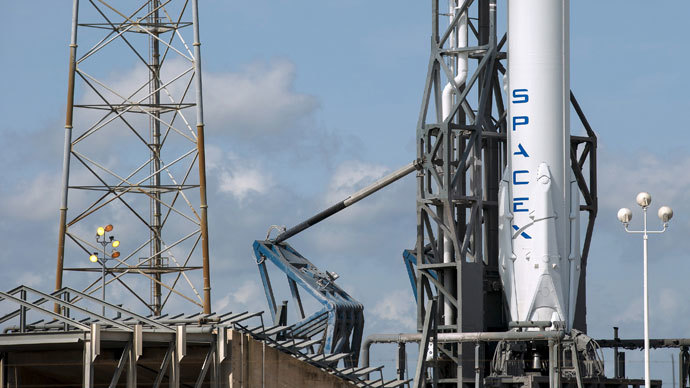Russian rocket engines key to US ‘assured access to space’ - space command chief

The US can’t quit buying Russian RD-180 rocket engines for heavy lifting until it produces an engine with similar capabilities, chief of the US Space Command said. This follows frantic calls by Republican Senator John McCain to terminate the contract.
“Why in the world would anyone think we would want to continue dependency on Russian rocket engines, which traces up to the corrupt mafia that is around Vladimir Putin?” McCain told the Daily Beast this week after a group of fellow Republicans made the departure from Russian engines impossible for the 2016 fiscal year.
This is not the first time the senator has lashed out at US dealings with Russia. But after the outbreak of violence in Ukraine, he was the leading figure behind the legislation enforcing the rapid phase out of the RD-180 engines that have powered the Atlas V rocket, used in most US launches for the past two decades.
General John Hyten, the US Space Command head, explains why doing so would be shortsighted, at least for now.
Speaking at a House Armed Services Committee hearing on Friday, Hyten said: “Without access to the RD-180… we severely limit our assured access [to space], undermine the competition we have worked so diligently to enable and will have traded one monopoly for another in the medium and intermediate vehicle classes.”
Congress already plans to wean the US off of Russia’s RD-180 for heavy lifting purposes by 2019, as the American space industry is producing an equivalent, but there are fears it won’t make the deadline, which would leave Tesla founder Elon Musks’s commercial Space X firm the only muscle in the business. That is if the billionaire develops the Falcon Heavy launch vehicle by then.
Two new homemade launch systems are also expected by 2022, if all goes well, according to Hyten.
The US currently has nine RD-180 engines in its possession, but that’s not enough for the country’s needs, Hyten says. The senior official expressed his support for the fulfillment of the 2012 contract for the purchase of additional RD-180s, so as the company the US relies on for space launches can stay competitive until a new launch system is developed.
READ MORE: Defense, intel chiefs ask Senate for more Russian rockets

Currently, the Department of Defense and NASA both rely on United Launch Alliance (ULA) – jointly owned by weapons heavyweight Lockheed Martin and Boeing Defense, Space & Security. Its president and CEO Tony Bruno shares the concerns voiced by some.
“If the current law is not modified, America will not have assured access to space and competition will have been unintentionally eliminated, giving the new entrant a monopoly,” he says.
ULA uses its manufactured Atlas V and Delta VI launch systems, which utilize Russian-made RD-180 engines. Some two-thirds of US national security payload is dependent on their work at this time.
Space X’s senior director of propulsion engineering, Jeffrey Thornburg, isn’t enjoying this dependence on Russia either.
READ MORE: Blast off! Air Force certifies SpaceX to compete for launch contracts
“As senior Russian leaders have noted numerous times, they can cut off the supply of the RD-180 engine [to] the United States at will,” he told National Defense Magazine.
Although the company’s Falcon 9 launch system is currently the nation’s go-to system for the delivery of the “highest-value national security payloads,” according to Thornburg, the company is being criticized by Bruno, who is urging the government to examine Space X’s past technological failures.
“The space and business press is awash in stories that chronicle the history of Space X over-promising and under-delivering on both cost and schedule,” according to the ULA head.
The US doesn’t want to lose out on space advancements. The country is the biggest buyer of rockets used to maintain its position in the space sector, according to Michael Griffin, NASA’s former administrator.
Griffin believes the “vagaries of the market cannot be allowed to determine whether or not critical payloads make it to space in a timely fashion.”












